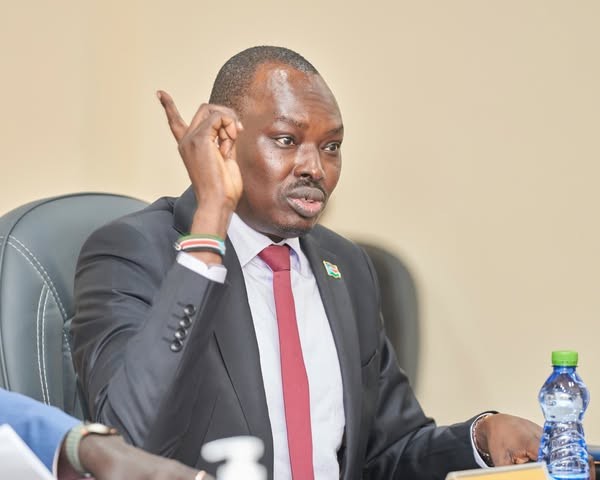
South Sudan’s Economic Cluster, led by Vice President Benjamin Bol Mel, has approved a proposed national budget of 5.2 trillion South Sudanese pounds for the fiscal year 2025–2026, an increase of over one trillion pounds compared to the previous year’s budget.
The draft budget was presented by the Minister of Finance and Planning, Dr. Marial Dongrin Ater, during a cluster meeting on Wednesday.
It will soon be submitted to the Council of Ministers for formal approval and will undergo parliamentary deliberation.
Dr. Dongrin explained that the government’s financial strategy aims to address urgent financial needs, and will prioritize economic recovery, macroeconomic stability, and support for the nation’s democratic processes.
It will also focus in promoting economic reforms and improving services in critical sectors such as health, education, and infrastructure.
“The proposed budget clearly outlines national priorities: strengthening agriculture and mining to unlock our vast potential, ensuring timely payment of public servants’ salaries, and expanding humanitarian support to uplift vulnerable communities across the country,” a statement to the media noted.
During the budget presentation, Dr. Benjamin Bol Mel emphasized the need for fiscal discipline, transparency, and a people-centred approach to budgeting and public spending.
VP Bol urged all institutions to align with these values, ensuring that expenditures are lawful and serve the best interest of the people.
Following the meeting, Environment and Forestry Minister Josephine Napwon highlighted that a significant portion of the funding would come from oil exports and various non-oil revenue sources.
The government plans to focus on agriculture and mining as key areas for investment to diversify the economy and create more jobs for citizens.
This new budget is particularly important as the government faces increasing pressure to stabilize public finances and enhance infrastructure ahead of the upcoming national elections.
Last year’s fiscal budget introduced new taxes, resulting in sudden increases in fees and prices in the market. However, it remains unclear whether the 2025/2026 budget will also include new taxes.

